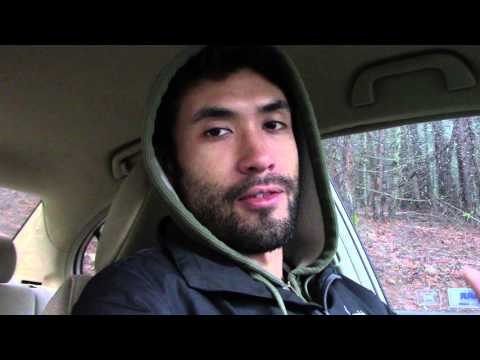Good day. Mastered step how to learn to relax, you will learn the most effective relaxation techniques. This step, as well as each of the steps in the framework of the plan of self-development will be divided into theory and practice.

After you become familiar with the theory, you will be able to go through the practice and for seven days, every day, master various ways of relaxation. You practice independently by simply reading my course and following the recommendations from it.
If you have completed the implementation of practical recommendations given in the previous steps, I hope you got an idea of the development of willpower and awareness. These skills will help you a lot in this step. And if you began to study my plan for self-development from this step, then it's okay, finish it, and then proceed to the previous ones, if there is a desire.
As a theoretical basis for this step, I will give the main conclusions from all the relaxation articles that are presented on my blog. So you can take this step as an independent article, summarizing everything else, and it will summarize all the information that will help you learn to relax.
The ability to relax independently is an important skill.
In our stressful life, the ability to relax independently is a strategically important skill. But, unfortunately, not all possess this skill and therefore resort to the help of alcohol and all sorts of sedatives and without this they cannot relieve tension. These people are convinced that the stressful environment surrounding them is to blame for their stress, and that, in such circumstances, it is impossible to relax without aids. But it is not. The amount of stress received per day depends not only on the external situation, but also on your sensitivity to stress, the ability to maintain a relaxed internal state among the external fuss. Therefore, it is important not only to be able to relax during the rest, but also to be calm during the day, letting in as little stress and negativity as possible. And the less stress we get, the easier it will be for us to relax later.
Many people forget about this and, having tried several relaxation techniques, they fail, because the tension is too high. Therefore, here we will learn not only relaxation techniques, but also how to maintain a relaxed state during the day.
If you get used to relaxing with the help of alcohol, then the body gradually loses its ability to withstand stress. This happens, firstly, because alcohol destroys the nervous system, and, secondly, because, having become accustomed to doping, to an easy and quick means of relief, you lose the ability to self-regain yourself in a calm state, and when Do not drink, your level of anxiety rises.
It is important to be able to suppress the nervousness and to extinguish the accumulated tension. A tense and nervous person is like a car moving at high speed, which is very difficult to control: one careless effort directed to the steering wheel - and the car starts to go from side to side, losing balance. When you are nervous, it is difficult for you to control yourself and everything goes quite the way you want it yourself: you lose yourself in thought, make unnecessary movements, speak very quickly, stutter. In general, you in every way "puts" on turns.
A relaxed person travels at a reasonable speed, which allows him to deftly maneuver, bypassing obstacles, without missing a single traffic light or warning. When you are relaxed, everything turns out better than you want. In addition, a relaxed body, like a slow car, consumes far less energy than an organism in constant stress. And if you are relaxed all day long, then the balance of energy and good mood persists in your evening.
“Slowly you go - you will continue,” proverb says. The less you are tense and the more relaxed you are, the less you are ill and, accordingly, you live longer, since many diseases are related to the state of the nervous system.
How to achieve such relaxation? The following articles will help you with this. You can familiarize yourself with them or read the conclusions from them, which I will give below. The conclusions will concern only the theory; we will practice in the next part of this step. If you can not wait to learn about the basic techniques of relaxation - go straight to the practice, it is presented below in the article, especially since I outlined the main theoretical conclusions in this step.
Theory
1. 8 tips on how to relieve stress without drugs and alcohol
2. Myth 2 - Alcohol and pills help to cope with stress.
Optional
In the event that the reason why you cannot relax is the constant nervous rush, impulsiveness, constantly scattered attention, difficulties in sitting in one place for a long time, then I recommend reading this article for reading.
3. How to get rid of attention deficit hyperactivity disorder (ADHD)
If you are nervous a lot, then I advise you to read this article, as nervousness creates tension.
4. 7 lessons on how to stop being nervous on any occasion
Conclusions from the theory
- Stress is your inner reaction to what is happening. And how strong this reaction is depends on you.
- Nervousness, inability to relax only interfere in life.
- Stress and fatigue is easier to prevent than to prevent!
- The fact that without alcohol and other drugs you cannot relax is a lie.
- Alcohol is one of the most harmful and dangerous drugs. It has a devastating effect on the body. This is not the most appropriate means of relaxation.
Practice. We master relaxation techniques.
The practice, as usual, will be broken down by days and should be carried out gradually. Every few days we will learn one of the relaxation techniques. In addition, everyday tips will be given to help you relax during the day. The purpose of the practice is to try various relaxation techniques on our own and make sure that our body can relax on its own, just need to properly adjust ourselves. The program is designed to help you gradually learn how to relax, its schedule will help you to control yourself by following the plan I set. It is much more efficient than doing it haphazardly.
But if you do not want to follow the plan, then from here you can get a lot of useful information about relaxation methods. But still, I recommend experimenting on yourself and working on a schedule, it will also help you live an unusual week for you and bring diversity to your life.
At the time of the practice of this step (7 days) exclude completely the use of alcohol. If you smoke, reduce the number of cigarettes smoked daily by at least 1.5 times, or better, generally by 2.
Day 1-3. Master the diaphragmatic breathing
Let's start with a very effective method of relaxation. This breathing occurs by raising and lowering the diaphragm, the internal organ that separates the upper body and lower body. Unlike chest breathing, when you breathe a diaphragm, your stomach falls and rises, not your chest. This breathing allows you to effectively saturate your tissues with oxygen, it provokes a faster release of toxins and helps to relax.
When you are tense, you breathe in your chest at a fast pace, but in order to relax you need to take deep and slow rhythmic inhalations and exhalations (perhaps this is the reason why a smoker relaxes, breathing in and out the smoke - it's all about breathing).
How to learn diaphragmatic breathing? Very simple. Sit or lie down. The back is straight, look in front of you. Put one hand on your chest, the other on your stomach. Breathe. If you use diaphragm breathing, then the chest should rest in place, and the stomach should be lowered and raised. At the same time, it is not necessary to force out and compress the abdomen by means of muscular effort: the tension of the abdominal cavity must occur due to air, expands the lungs, lowering the diaphragm. Abdominal muscles should be relaxed.

Inhale and exhale as deeply as possible, the duration of which should be equal to each other. You can watch the stopwatch or measure these time intervals for heartbeats. There is no need to hold breaths between inhalation and exhalation. Do not be distracted by extraneous thoughts: relaxation is still due to the fact that you fix all your attention on breathing.
At first, diaphragmatic breathing may not work, but everything comes with practice. Do this exercise 3 - 5 minutes. 2-3 times a day, but not immediately after a meal. After doing the exercise, pay attention to your health, you feel calmer, is not it? You can breathe like this before an important meeting, in a traffic jam, at work (or after it), when you need to bring your head and nerves in order and relax.
A more complex exercise option is breathing with a compressed vocal gap. It is necessary to strain the throat in a special way so that the air enters and leaves you through a narrow slit, then when you inhale and exhale, such a sound "xxxxxx" appears. In this way, the difference in pressure between the air outside and the air inside increases, and the oxygen that is filled with the stomach begins to put more pressure on its walls. This is a more efficient massage of internal organs and saturation of tissues with oxygen. Such breathing is used in yoga. You can try after you master the initial skills of breathing a diaphragm.
Additional exercises
From this day, every day, try to take breaks in work (3 - 4 times a day for 10 minutes). During a break, take a walk and move around if you have a sedentary job (in general, engage in a lesson completely different from your work). If possible, it is better to go out and breathe. Think about something else. During the break, you can not watch the monitor. Teach yourself to breaks in work, try to do it always, in the future, and not just for the duration of the practice from this step.
Teach yourself never to hurry, even if you are late. Enter this as a rule. Haste is very bad for your nervous state of health and very tiring. When you are in a hurry, you actually do not achieve results much faster than if you are acting in size. You can even lose due to loss of concentration and concentration due to the fact that you are in a hurry.
On one of these three days, take a long walk in solitude. During it, try to clear your mind of thoughts about the current day, think about something abstract. Look more around, pay attention to what is happening around and do not lock yourself in thoughts about yourself and your experiences. As soon as you catch yourself thinking that your mind begins to tinker in thinking about today's problems, calmly stop it. Discipline your thinking, it will greatly help you in life.
And I hope you have not forgotten about meditation? If you have not read the previous steps, then study step 1 along with this step and add meditation to your daily practice.
Day 4. Relaxation techniques from yoga
On the fourth day, after reading these materials, try another relaxation technique, while continuing to practice diaphragmatic breathing 2-3 times a day.
In the evening, lie down on the bed (or on the mat, "foam", on the floor), on your back. Hands open palms up, slightly dissolve them, so that the angle between the arm and the body would be thirty degrees. Close your eyes, no other sounds should distract you. If you want to relax to the music, then it must be very smooth music for relaxation (ambient, quiet ethnic music). Start slowly to stop attention alternately on each part of the body from head to toes and relax it: head, eyebrows, mouth, throat, shoulder, left hand: humerus, elbow, forearm, wrist, palm, fingers (you can stay at each ) again, palm, forearm, elbow, humerus, shoulders, right arm: humerus ... And so on we reach toes. Then we try to relax the whole body.
Watch your thoughts as a bystander, they should not enthrall you. If the attention "floats", gently return it back. No need to try by all means to stop the thoughts and experiences, your goal - to relax. Just like with meditation. The more you force yourself to relax and not think about anything, the worse you will get it. Your will must rest, no need to direct it to relax. In this state, you have no will, no desires, no intentions ... you just calmly watch.
Spend in this position from five to twenty minutes, as much as you need. Get out of it smoothly: while continuing to lie down and without opening your eyes, move your toes, then your fingers. Slowly roll onto your side and, helping yourself with your hands, sit down (this is in order not to make sharp muscular efforts). Open your eyes. Assess your condition, compare it with the one before the practice. Now you feel much more relaxed.
This exercise, also used in yoga, to achieve complete relaxation after physical activity. Its principle is that the relaxation of the body entails peace of mind.
Now you know how to do it and from this day use this practice every time you have a need to relax. You can sometimes replace them with meditation.
Day 5. Take a light run.
On this day, take a short jog. What each can do. You must be a little tired. Assess your condition after physical activity. You should feel pleasant tiredness in your body. At the same time, nervous fatigue should disappear, and your mood and general well-being should be better than before. I do not just advise every time to assess their condition. It is necessary that the connection between meditation, sports, relaxation techniques and well-being be fixed in your brain.
When you want to drink alcohol or smoke, you are not drawn to a bottle and a cigarette, as such, but to those states (relaxation, satisfaction, calm, good mood) that you achieve with the help of these things. Having a formed connection in your head between the feeling of pleasure (or lack of displeasure) and certain drugs is one of the factors of dependence. The goal of this step is to make pleasure and relaxation associated with something useful, and not with destructive drugs for the body. Awareness of the effect of relaxation techniques, assessment of your condition, help to better secure the necessary connections in your brain.
So it will be easier for you to do this all, you will want to do it, as there will be a desire to feel better.
Day 6. Relax to the music
In the evening or in the afternoon, listen to an album or collection of some relaxing music. At the same time, you should not do anything, but just listen. For many, quiet listening to music is quite a challenge, as they are accustomed to listening to music “in the background” (while they are driving in a car, doing work). And in the absence of other external stimuli, this process will seem to them very boring, they will want to interrupt it or to do something in parallel. You must ignore this desire. We listen 40 minutes - an hour, before that we do not get up. We relax. But remember that we should not force ourselves to enter into relaxation and worry about the fact that we do not succeed. Everything happens by itself.
Day 7. Final Exercise
On the last day of practice, take an hour walk or jog, which you can do. Spend a mental summary of the past week. Ask yourself what you have learned new? What have you learned? Did you get at least somehow independently relax. You should not expect significant progress in just a week, but, in any case, you should feel the acquisition of at least some relaxation skills and feel the effect of the techniques described in this step.
Results
The task of this step was not just to list various relaxation techniques. You had to try to do them yourself, in order to make sure that independent relaxation is possible without ancillary drugs. And most importantly, this awareness should be fixed within the patterns of your thinking. The purpose of this step is to teach by living example, and not just to provide information about what relaxation techniques are.
I hope you have learned from your own experience that there are a lot of effective and healthy relaxation methods. And I even more hope that you will continue to embody this new knowledge in your life and not stop with the completion of the practice. Good luck to you! Wait for the release of new steps.



